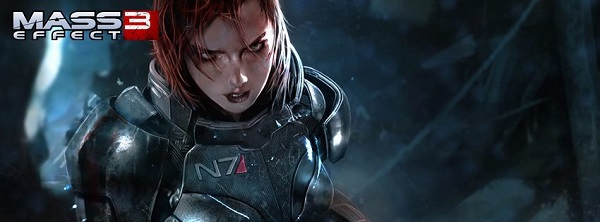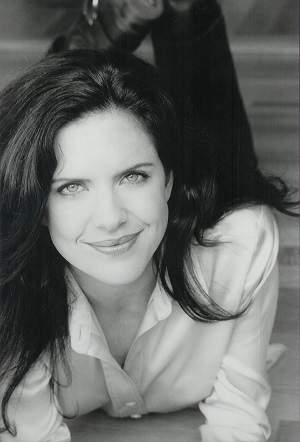With bruised eyes, a bloodied nose and weeping wounds, Commander Shepard in charred armour slumps next to an excessively wounded and exhausted Anderson. As they look out over the battle carnage playing out above Earth, Anderson tells Shepard through hardened, tired, painful breaths “I’m proud of you.” There’s a pause before Clint Mansell’s haunting piano score steadily fills the void. Shepard has overcome insurmountable odds to even reach the top of the Citadel in the galaxy’s fight against the advanced machine race of synthetic-organic Reapers. Regardless of what went on to happen in my game and millions of others after that moment, one truth remained; a leading female character in a huge videogame franchise could be as emotive, powerful, and strong as those we’ve seen on the big screen in Ripley and Sarah Connor yet still remain feminine without becoming a stereotypical cliché. It’s also true that this would never have been fully realised without the exceptional talents of Jennifer Hale.
“Bioware just got it!” Hale enthusiastically emphasised when we caught up with her in LA last month. “They had always written the role of Shepard as neutral but a big thing for me, which I’m proud to have been part of is when Mass Effect 3 came around, they listened to the fans and finally put a FemShep on the box.” It’s a nod partially to the persuasive power of online communities that can coin a phrase and bring around change; seen not only with the cover artwork choice but in Bioware’s response to the dramatic outpouring of opinion regarding the controversial ending to the trilogy. “I felt overall, it was good as it meant players really cared and were passionate about the game” reflects Hale who modestly, perhaps had more of a key role in getting the female Shepard character onto the cover than she would openly crow about. Having won over the fans with her convincing, poignant and powerful performances Hale also uses her profile to empower the games industry in promoting positive female lead roles, which helped secure FemShep a cover spot and will hopefully continue to inspire others. “It’s fantastic! I can’t believe that I’m that lucky to get to do that.”

Having started her career in theatre where she would occasionally do voice work for commercials, her first videogame role was tied-in to a cartoon and came in 1994 when playing Ivy, one of two sibling sleuths chasing down international time-travelling thief Carmen Sandiego. Since then, Hale has voiced some of gaming’s most iconic characters including Commander Shepard in the Mass Effect series and Rosalind Lutece in Bioshock Infinite, as well as roles in Metal Gear Solid, Metroid Prime, Halo 4, Doom 3, Bulletstorm, Diablo III, and a plethora of Star Wars titles to mention but a few, landing her a Gamer Edition: Guinness World Record 2013 for being "the most prolific videogame voice actor (female)”. I asked how she now feels after her first vaguely related voice work job all those years ago has led to her not only becoming so prolific but how she is for so many, the voice of women in games. “I’m just happy to be working y’know! I think ‘Have I still got it? Can I do this?’ But it’s become this crazy thing that has evolved from ‘Can I do this to I can do this to I really wanna get much better at this to where can I take this now, what can we do with this?’ What do we exist for except to move ourselves forward?” It’s this drive and experience that now allows Hale to challenge the industry, rallying for the creation of more dynamic female leading roles. “I think the people who are smart enough to jump on the bandwagon now are going to be the ones making the most money, and become the ones who are the trend setters. I think that this part of the entertainment world is starving for it, and I think women are ready for it!”
Timing wise, her rally cry is loudly heard as there has never been a more opportune moment for leading ladies to be in the spotlight; Ellie in the Last of Us, Tiny Tina in Borderlands 2 and Lara Croft’s most recent incarnation have all attracted positive attention from both critics and gamers who engage with them not simply for their assets but for the depth and scope of their characters. Alongside this, it was interesting to learn at the Develop Conference in Brighton this week, that having more female characters or members within developer teams would result in additional points being awarded in the proposed Cultural Test. Administered by the BFI, the test aims to reward British studios with large creative sector tax breaks/state aid if they can satisfy the set criteria. Anna Mansi, Head of Certification said at the conference “We don’t take a creative view on the game being made. Assessment is made purely on the creators meeting the criteria, and applications are looked at on a case by case basis. Those studios that have member of the development team who are female, have a disability or come from social minorities, or have similar protagonists in their games will score higher than those that don’t.” This is something that studios should begin to think about planning and including in their work, as the overall benefits are potentially huge.

Though her voice is her greatest tool, Hale certainly has the appeal, charm and skill to carry this message and inspire others who admire her not just for her talent and attractiveness, but for her willingness to speak out, for her passion, and insight, not to mention her warmth and patience as seen as she happily spends time with the hundreds of guys and girls who queue for her autograph and a photo at the end of any panel she sits on. To spend time with Hale is to almost fall under a spell. There is an infectious energy she shares with those who she comes into contact with, being at once playful and passionate yet determined and driven by wanting people to simply come together and celebrate the many good things that videogames are and could be. “I still hear ‘Do girls really run track and field? Can they actually play soccer? Do they eat big meals? Do they play videogames? Do they actually like, fart and make stupid jokes?’ I love stupid jokes! We need to leave these questions and conversations behind and go have fun and do some exciting things!”
It’s a command that Jennifer Hale will continue to issue and one that we should all respond to, if only to ensure that there are many more games made that Hale can lend her talents to.